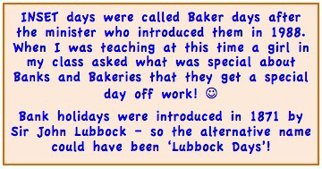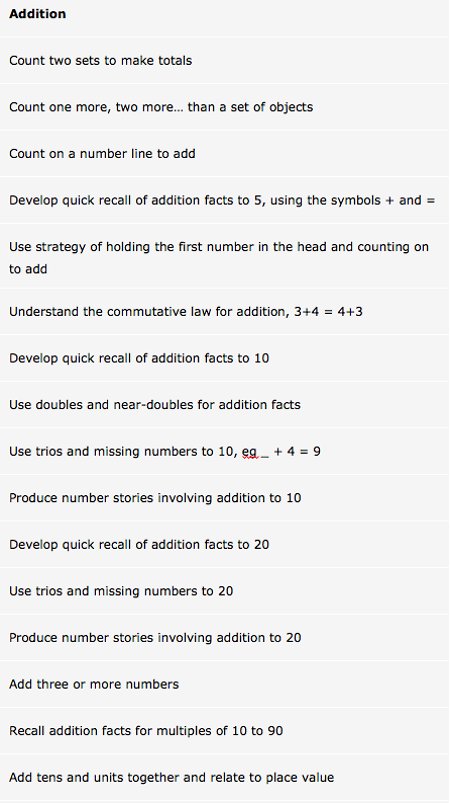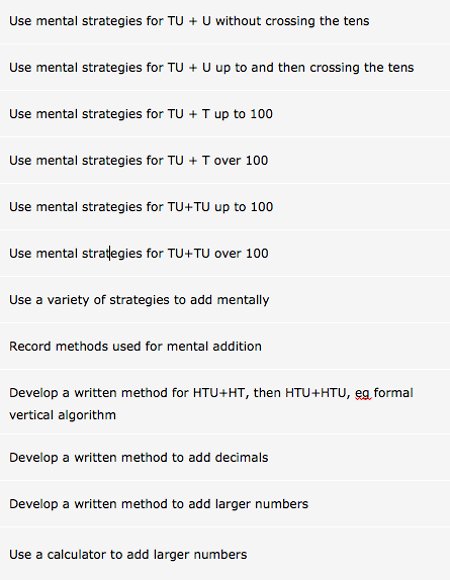When researching this topic, I re-read the report ‘Good practice in primary mathematics: evidence from 20 successful schools’ published by Ofsted in November 2011.
It examines the work of a sample of 20 high achieving schools (10 maintained and 10 independent schools), focussing on ‘identifying characteristics of effective practice in building pupils’ secure knowledge, skills and understanding of number so that they demonstrate fluency in calculating, solving problems and reasoning about number.’
It examines the work of a sample of 20 high achieving schools (10 maintained and 10 independent schools), focussing on ‘identifying characteristics of effective practice in building pupils’ secure knowledge, skills and understanding of number so that they demonstrate fluency in calculating, solving problems and reasoning about number.’
It is an interesting read, and well worth having as a subject leader if you are looking at updating your calculation policy.
Much of it reinforces what we think of as good primary practice, but it is good to see evidence of successful teaching and learning.
For example, the report states that:
“ At each stage in developing skills in addition, subtraction, multiplication and division, the successful schools follow a similar pattern in:
• establishing pre-requisite knowledge of the number system such as place value, families of number facts and partitioning
• calculating in practical contexts and using hands-on resources such as base-10 materials
• developing mental methods supported by jottings and visual images such as number lines
• establishing written forms of recording, moving towards more efficient methods over time. ”
No arguing with that.
Thinking about the small steps of progression in calculation is also important. Looking through the steps in addition listed below (taken from my planning documents), it is easy to move children on too quickly before they have consolidated earlier steps in their knowledge and understanding. I’m not necessarily suggesting ‘overlearning’ with children continuing to practice a skill long after they have mastered it, but I’ve always been a fan of practice (I’ve written a lot of practice type books!) – as long as the children are motivated and that this doesn’t dominate the experiences of the children. Look at these steps and pick out the ones that your class particularly need to consolidate.
Much of it reinforces what we think of as good primary practice, but it is good to see evidence of successful teaching and learning.
For example, the report states that:
“ At each stage in developing skills in addition, subtraction, multiplication and division, the successful schools follow a similar pattern in:
• establishing pre-requisite knowledge of the number system such as place value, families of number facts and partitioning
• calculating in practical contexts and using hands-on resources such as base-10 materials
• developing mental methods supported by jottings and visual images such as number lines
• establishing written forms of recording, moving towards more efficient methods over time. ”
No arguing with that.
Thinking about the small steps of progression in calculation is also important. Looking through the steps in addition listed below (taken from my planning documents), it is easy to move children on too quickly before they have consolidated earlier steps in their knowledge and understanding. I’m not necessarily suggesting ‘overlearning’ with children continuing to practice a skill long after they have mastered it, but I’ve always been a fan of practice (I’ve written a lot of practice type books!) – as long as the children are motivated and that this doesn’t dominate the experiences of the children. Look at these steps and pick out the ones that your class particularly need to consolidate.





